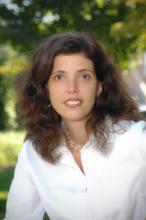Title: How the human mind represents events
Abstract: Humans are surprisingly adept at interpreting what is happening around them, even from a single glance. Beginning at infancy, we are able to recognize dynamic events, the roles that various entities play in these events and the temporal and causal components that make up events. Furthermore, we use language to describe the events that we experience. But what, exactly, is an event? In this talk, I propose a theory of eventhood that combines insights from logico-philosophical analysis, cognitive psychology and linguistic theory, and thus places the nature of events at the heart of modern cognitive science. On this theory, the representational units of events in cognition rely on abstract underlying structure, including temporal boundaries. In that sense, events are similar to objects (since objects also involve abstract structure, including spatial boundaries). This proposal predicts systematic patterns in the way people spontaneously perceive unfolding events. It also explains otherwise mysterious similarities in how events and objects behave as cognitive entities. Finally, this proposal naturally accounts for the existence of a homology between the cognitive and linguistic structure of events. This framework opens up exciting possibilities for future research on how people represent, remember and talk about what happens.
Faculty wanting to meet with Dr Papafragou should contact Bob Slevc slevc [at] umd.edu
Grad students wanting to have lunch with Dr Papafragou (12:15-1:30) are invited to contact Robert Ragsdale rragsdal [at] umd.edu



